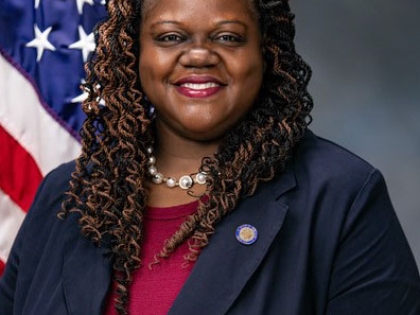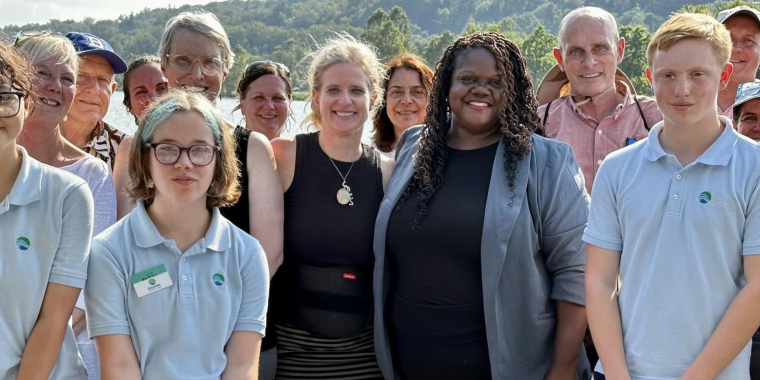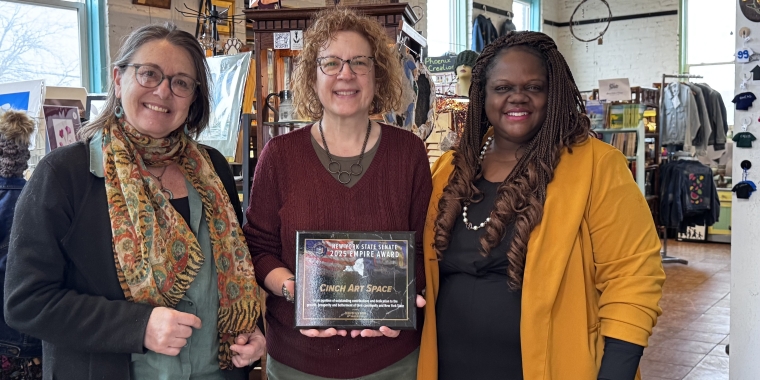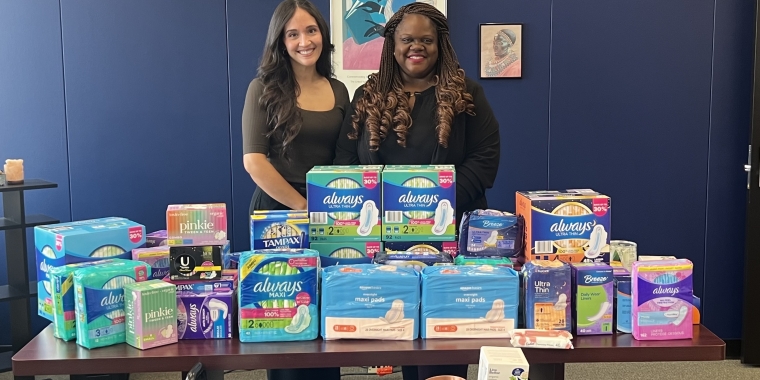
Assemblymember Kelles, Senator May and Senator Webb Host District Leaders for Water Health Experience
September 6, 2023
-
ISSUE:
- Clean Water
- Upstate New York

ITHACA, NY - Assemblymember Anna Kelles, Senator Lea Webb and Senator Rachel May hosted Tompkins County municipal leaders and local water health experts September 5 for an informative afternoon exploring the natural freshwater resource of Cayuga Lake and its ecosystem. Aboard the Discover Cayuga Lake, participants experienced the “floating classroom” with hands-on activities led by Bill Foster and the Discover Cayuga Lake crew, including youth leaders. Municipal leaders were able to use instruments to test the pH level of the water as well as its clarity, or turbidity, and viewed collected specimens under microscopes. Prior to departing, Sachem Sam George from the Cayuga Nation, offered a traditional water blessing.
Cayuga Lake and its watershed is vitally important as a source of freshwater in the region, serving as the primary drinking water source for at least 40,000 residents. The watershed spans parts of 6 counties (Cayuga, Tompkins, Seneca, Schuyler, Tioga and Cortland) and is impacted by the needs of agriculture, industry and tourism. In the face of climate change, one threat to the lake and water health is from Harmful Algal Blooms (HABs). These blooms of cyanobacteria can contain cyanotoxins, which are toxic to humans and other animals. Community Science Institute, an organization represented at the event, monitors HABs outbreaks in the lake and had recorded 7 HABs outbreaks on September 5. Assemblymember Kelles has fought for funding in the New York State Budget to fund research that will improve our ability to predict and prevent the occurrence of HABs.
Following the boat tour, Dr. Roxanne Razavi, Assistant Professor of Environmental Biology at SUNY College of Environmental Science and Forestry (ESF), presented on per- and polyfluoroakyl chemicals (PFAS or “forever chemicals''), how they present in our water and their impact on our health. Assemblymember Kelles and Senator May sponsor the PFAS Discharge Disclosure Act (A3296/S227B) which would require all permitted facilities discharging waste in the state to disclose the measurement of PFAS chemicals found in any discharges.
Assemblymember Kelles said, “I wanted all the leaders of the region to have a visceral experience with the lake today, to truly understand that the health of the lake and its watershed is inextricably connected to the health and well-being of all the people in our districts. I’ve called on all the municipal leaders to be ambassadors for the lake, and we’ve connected them with the experts who can help them go out and educate our community. We will all need to work together on policies and funding that protect this precious natural resource for generations to come.”
Senator Lea Webb said, "It is essential that we do everything we can to protect Cayuga Lake and its watershed for the health and enjoyment of our community and for future generations. I am grateful to have such strong partners in Assemblymember Kelles and Senator May as we work together to protect our fresh water. I thank Assemblymember Kelles and her team for hosting an informative and inspiring event on the lake with our partners in local government and the water advocates who do so much to help us protect this precious resource. Access to fresh, clean water is critical to the health and well-being of our communities.”
Senator Rachel May said, “Lake governance is difficult and complex. Water doesn’t respect or recognize boundaries like villages, towns, or counties. Many people are invested in their lakes, for a variety of reasons, whether they live on the lakeshore, drink the water, enjoy tourism or recreation on the lakes, or own farmland in the watershed. That’s why I was glad to join with Assemblymember Anna Kelles and Senator Lea Webb to bring together municipal leaders on Cayuga Lake in Tompkins County to learn and discuss how we can better preserve our precious freshwater resources. It’s our duty to address the mounting pressures our lakes and other waters face in a rapidly changing global climate and to take action to protect them for the benefit of all.”
###
Share this Article or Press Release
Newsroom
Go to Newsroom

